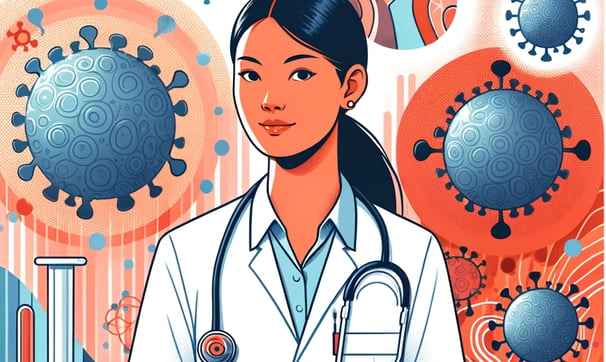HPV Demystified: Understanding Risks, Prevention, and Treatment
EDUCATION
HPV Demystified: Understanding Risks, Prevention, and Treatment
Human Papillomavirus (HPV) is the most common sexually transmitted infection (STI), affecting millions worldwide. With over 100 types, HPV can lead to genital warts and, in some cases, certain types of cancer. Understanding HPV is key to prevention and effective management.
What is HPV?
HPV encompasses a group of viruses, with more than 40 types affecting the genital areas of both men and women. While most HPV infections go away on their own without causing any health problems, some persist and can lead to genital warts or cancer.
Symptoms of HPV
Most people with HPV don't know they are infected as it often has no symptoms. When symptoms do occur, they may include:
Genital warts: Small bumps on the genital or anal area.
Rarer symptoms include respiratory warts.
In women, persistent HPV infections can lead to cervical cancer.
Diagnosis and Testing
HPV is diagnosed primarily through screening tests:
Pap smear for cervical cancer screening in women.
HPV test, which checks for the virus in cervical cells.
Regular screenings, as offered by STDCheck.com, are essential as HPV often shows no symptoms.
Treatment Options
There's no cure for the virus itself, but there are treatments for the health problems that HPV can cause:
Genital warts can be treated with prescription medication or removed by a healthcare provider.
Precancerous cervical lesions can be treated effectively if caught early.
Prevention Strategies
Vaccination: The HPV vaccine is safe and effective and can prevent most types of genital warts and cervical cancers.
Using condoms can lower the chances of getting HPV, though they don't provide complete protection as HPV can infect areas not covered by a condom.
Regular screening is crucial for early detection, especially in women.
Living with HPV
Most HPV infections clear up on their own and don't cause any health problems. For those that persist, regular medical follow-ups and treatments are vital. Open and honest communication with sexual partners about HPV status is also crucial.
Conclusion
HPV is a widespread and often misunderstood STI. Vaccination, safe sex practices, and regular screenings, such as those available at STDCheck.com, are essential tools in managing HPV. Being informed about HPV can help you take proactive steps to protect your health and the health of your sexual partners.


